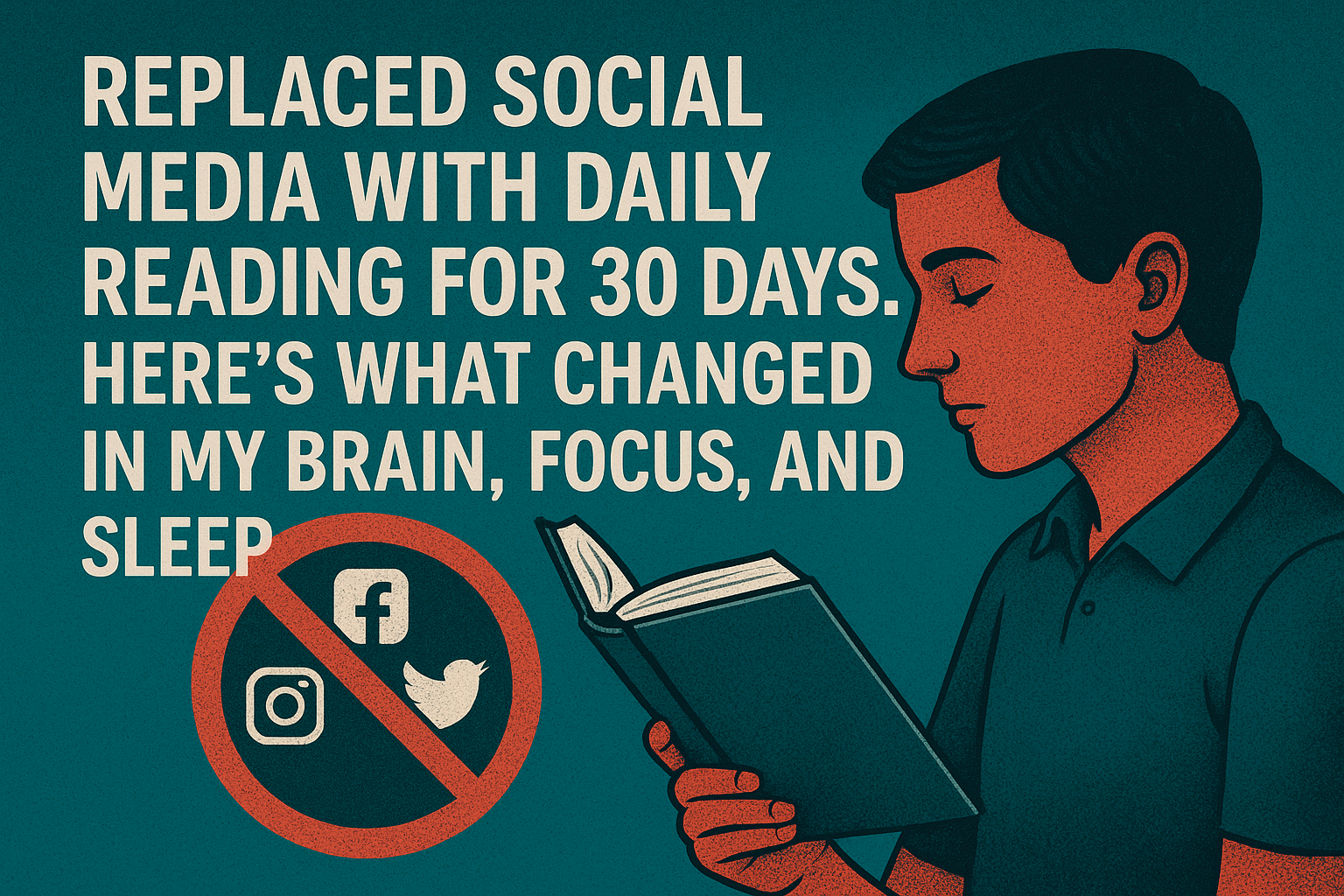When was the last time you sat in silence, without reaching for a device? For many of us, the question itself feels uncomfortable. We live in a state of perpetual, low-grade distraction, our minds flitting from notification to feed in a cycle that feels both compulsory and unsatisfying. We know our attention spans are shrinking and our sleep is suffering, but the path out of the digital haze seems unclear. Recently, a user on the subreddit r/getdisciplined shared a powerful and deeply relatable account of their 30-day journey from digital numbness to mental clarity, and it offers a compelling blueprint for anyone feeling lost in the scroll. I thought I’d share my similar journey.
The Anatomy of a Wrecked Attention Span
The story begins with a familiar scene: waking up and immediately scrolling. “TikTok, Twitter, IG. It was muscle memory,” the user writes. “I didn’t even want to scroll. I just needed something. Anything.” This wasn’t about engagement; it was about numbing. This experience reflects a growing societal crisis that journalist Johann Hari famously termed “Stolen Focus.” The algorithms that power our digital lives are not neutral; they are meticulously designed to capture and hold our attention for profit, often leaving us feeling “half-present,” anxious, and drained without knowing why. The Redditor’s realization that they hadn’t finished a book in three years wasn’t a personal failing, but a symptom of an environment that actively discourages the deep, sustained focus that reading requires.
The Uncomfortable Work of Rewiring
The decision to quit cold turkey – Facebook, Twitter, wasn’t an instant fix. The first week was marked by the phantom limb syndrome of the modern age: unconsciously reaching for a phone that no longer offered its usual escape. The turning point, however, wasn’t just the absence of distraction, but the introduction of introspection. I started journaling, a process that was pretty awkward at first. This act of slowing down and confronting one’s own thoughts, without a feed to buffer them, is the foundational work of reclaiming a mind. It’s in this quiet, often uncomfortable space that the internal noise begins to subside, creating room for something new. By week three, that something new was a book or long form reading or focusing on the KSL Knowledge project. The enjoyment was unexpected but profound, highlighting a shift from chasing fleeting, algorithm-fed highs to cultivating a more stable, internal sense of engagement.
A Practical Toolkit for a Digital Renaissance
By the end of the my 6 month journey, the benefits were life-altering: the FOMO vanished, real-world friendships deepened, sleep improved, and a sense of presence returned. The journey wasn’t just about willpower; it was about strategy. They shared a set of practical rules that served as guardrails for their new habits, such as leaving my phone on the charger when I went to a quiet space in the early morning replacing the urge to scroll with “micro-reading” just five pages of a book.
This personal experiment was supported by a modern curriculum for digital wellness. Books like *Dopamine Nation* by Dr. Anna Lembke provided the psychiatric framework for understanding the addiction cycle, while James Clear’s *Atomic Habits* offered the system for building a new life brick by brick. This combination of understanding the “why” (the neuroscience of addiction) with the “how” (the mechanics of habit formation) is what makes this story so powerful. It transforms the vague desire to “use my phone less” into a concrete, actionable plan for mental and emotional restoration.
I hope this story serves as a powerful reminder that we are not lazy or broken; we are simply overstimulated and disconnected from ourselves. The path back doesn’t lie in shaming our lack of willpower, but in consciously redesigning our environment and habits. It’s about replacing the empty calories of the infinite scroll with the nourishing meal of a good book, a quiet walk, or a candid journal entry. The journey shows that our brains can be rewired for focus and peace, and that a more present, fulfilling life is waiting on the other side of the screen. What is one small, intentional change you could make this week to reclaim a piece of your own attention?

